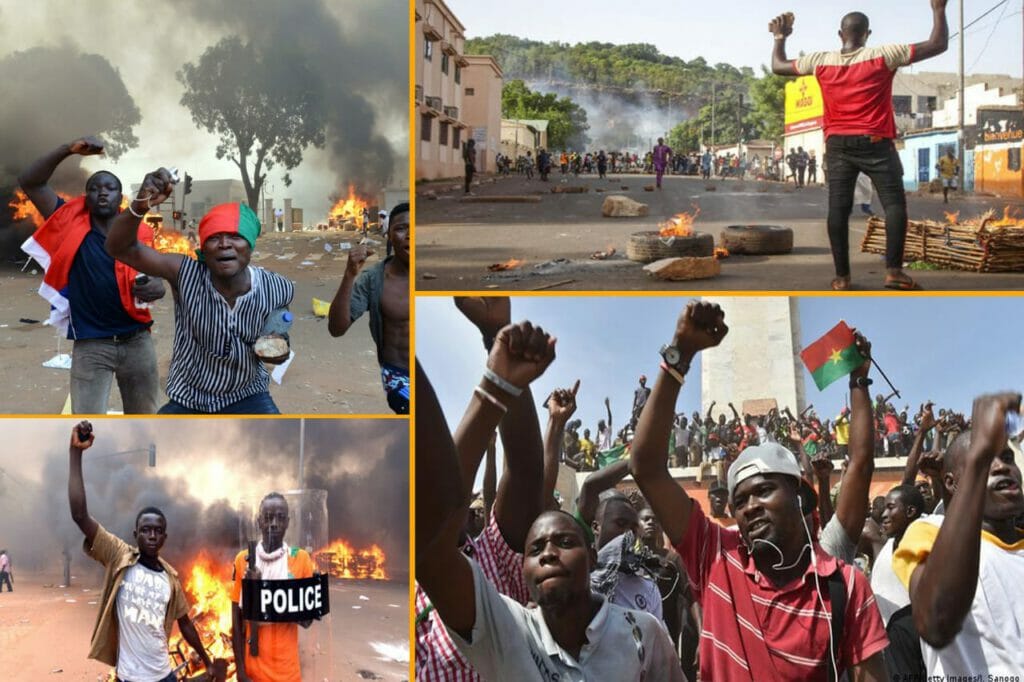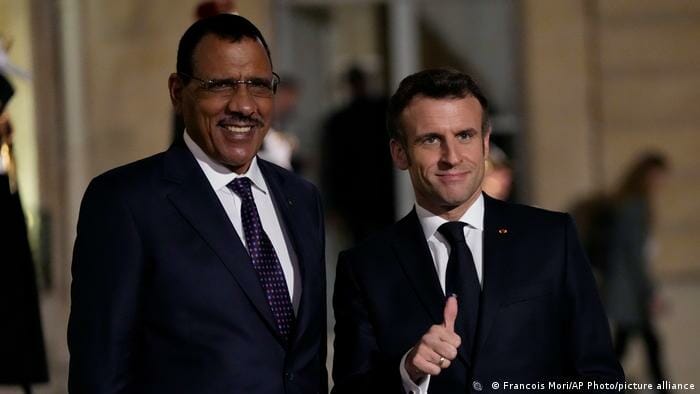Niger President Mohamed Bazoum’s all-out docility to France

NEWS ANALYSIS
BY LUC ABAKI
The president of Niger, Mohamed Bazoum, who was elected in February 2021 in the run-off with 56% of the votes amid violent protests, seems to be one of the essential pawns still hard at work to keep France’s hegemony on its former African colonies. While the people in the French-speaking zone of West Africa are more mobilized than ever to free themselves from the tutelary power of this metropolis of yesterday, the president of Niger stands at the antipodes of this salutary dynamic so desired throughout the zone. Former President Mahamadou Issifou, acting as the mentor of the current president, pretty much imposed him on his party and on the people whose vote appeared largely to have been rigged.
However, for the sake of peaceful transition—something rarely, if ever, achieved in this Sahelian nation—a way was found, naturally with France’s tactical support, for President Bazoum to assume power. Once on this pedestal, Mohamed Bazoum proves very docile to France, clearly giving the impression that he is primarily concerned with preserving the interests of Macron’s country both in Niger and in the entire West African sub-region. He therefore did not hesitate to take sometimes contradictory positions publicly for the sole purpose of satisfying the will of Paris.
Thus in July 2021, while its neighbor, Mali, was already suspended from the Economic Community of West African States (ECOWAS) in the aftermath of the second coup of May 24, 2021, President Bazoum made his very first visit to Paris and clearly stated on the Perron of the Elysée, in the presence of the French president, that the measures to close his country’s borders with Mali could not be taken for the simple reason that such borders did not exist anywhere in the texts of this subregional organization.

A few months later, on January 9, 2022, the Nigerien president met in Accra with his peers of ECOWAS to be a part of the opposite of what he had argued in front of the cameras in Paris. Unprecedented measures, including the systematic closure of the borders of all countries adjoining Mali, were taken, obviously on a whim, without any legal basis.
Later, following a meeting at Quai d’Orsay with his French counterpart, Jean-Yves Le Drian, on January 27, 2022, Niger’s foreign minister, Hassouni Massaoudou, makes particularly discourteous and undiplomatic remarks vis-à-vis the Malian leaders. After stating the two diplomats’ total satisfaction over their converging views on the situation in the Sahel, he described as “fake patriotism” the statements made by Malian leaders. He then remarked bluntly: “We do not agree that military leaders who, after failing on the ground of war, grab political power, and, in the name of fake patriotism, call on mercenaries to defend the integrity of their territory.” His boss sitting in Niamey did not utter a word or remonstrance.
Put together, all these developments speak to the quasi-total dependence of Niger on France from which it accepts everything. This is how Niger endorsed the principle of the “redeployment” of the Barkhane force on its soil, after it was literally pushed out by the Malian authorities and people, for lack of tangible results in the fight against terrorist and jihadist groups for about nine years.

Despite the virulent legitimate protest of the Nigerien population and the political leaders of the opposition who are firmly hostile to the presence of such a force in Niger, the authorities of Niamey validated France’s request, even before considering the prospect of a consultation of the National Assembly. It will also be recalled that at the end of 2021, the troops of this same Barkhane force, coming from Burkina Faso, had been banned from passing through certain localities in northern Niger by young people, during the process of its redeployment in the area of the three borders, between Mali, Niger and Burkina Faso. These young people who stood up against these armored vehicles of the French army were shot with live ammunition, causing at least two deaths in their ranks. To date, no investigation has been able to establish the military guilty of these murders of Nigerien citizens whose only fault was to express their opposition to the intrusion of a foreign force clearly rejected by their neighbors—Mali.
These new developments clearly indicate that President Bazoum is largely at odds with the deep desire of the Nigerien people and all the citizens of the French-speaking area of West Africa today to undo, by a fierce struggle, the fatal links that have always existed between France and its former colonies. This unsavory attitude of the Nigerien president and his administration almost cost him dearly on January 31, 2022, when he faced a coup attempt that he was able to quickly stop.
But the strongman of Niamey does not seem to be bringing himself any time soon to change the paradigms of his relationship with this country whose influence on African leaders has always harmed the interests of their peoples. A testimony to this lies in the fact that more than six decades after the independence of these countries, none of them has yet emerged or benefited from an economic upturn that would open the prospect of building a solid state. How, then, can we understand that an African leader still bows to a foreign power, totally submitting himself to that power that, in reality, acts in its own interests, while the people who supposedly elected him aspire to no less than legitimate self-determination?
President Bazoum has to show more lucidity and realism, in order to meet the expectation of his people and the majority of the people in the ECOWAS region, with a view to a collective leap forward that should lead to the total liberation of those countries that have suffered too much under the yoke of this colonizer of yesterday.

